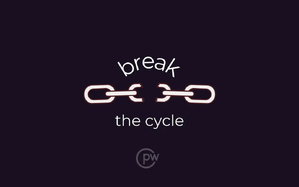Written by par Basma ELHAJAMI
Negative energy at work isn’t always loud. It’s not always a screaming boss or a public confrontation. Sometimes it’s the silent pressure to be constantly available. The lack of appreciation. The microaggressions. The colleague who drains the room with passive aggression. The absence of support. Or worse—the feeling that you are replaceable, invisible.
And over time, this starts to show. Not in dramatic breakdowns, but in subtle, creeping ways:
We are taught that work should be productive—but no one warns us how emotionally expensive it can become.
The Reason ?
And because somewhere along the way, many of us were conditioned to prioritize being useful over being well.
What are the consequences?
If left unacknowledged and unmanaged, negative energy at work can lead to:
The solution? Well....
Here’s the hard truth: if we can’t change the environment, we have to change our relationship to it.
1- Name it.
Call it what it is: toxic, draining, emotionally heavy. Naming the feeling gives it shape—and that makes it easier to manage.
2- Set energetic boundaries.
Not just physical ones like turning off notifications, but emotional ones. Learn how to say no, how to disengage from office gossip, how to protect your space. Not everything requires your energy.
3- Create a transition ritual.
The commute home can be sacred. Play music. Breathe. Journal. Take a walk. Let your body and mind understand: you’re leaving that world behind for today.
4- Talk to someone. (yes, you should not bottle it in)
Therapist, friend, mentor, even yourself in a voice memo. Get it out. Don’t let it pile up inside you like a storm waiting to happen.
5- Reconnect with your non-working self.
You are not your job title. Reclaim hobbies, passions, and parts of yourself that have nothing to do with productivity.
6- Make an exit plan.
If your workplace is actively harming your mental health and there’s no room for change—start plotting a way out. Quietly, wisely, strategically. You deserve more than survival.
We all want to believe that we’re strong enough to "tough it out"—but strength is not endurance. Strength is recognizing when something is hurting you and having the courage to choose better.
So if you’re reading this and feeling exhausted, numb, or on edge all the time—know this:
You’re not broken. You’re not weak.
You’re simply carrying too much.
Let that be your sign to start letting go—before your peace becomes just another dream that was built to be destroyed.
And over time, this starts to show. Not in dramatic breakdowns, but in subtle, creeping ways:
- You begin to isolate yourself, even from people you love.
- You wake up with anxiety, before the day even starts.
- Your confidence erodes—you doubt yourself in spaces that have nothing to do with work.
- You lose the energy to dream, to create, to enjoy.
- Your sleep becomes fragmented. Your body tenses, your mind races, and rest becomes a luxury.
The Reason ?
- Because we spend most of our waking hours at work.
- Because emotions are not something we can turn off when we clock out.
- Because humans are not machines—we absorb, we reflect, and we carry things with us.
- Because stress becomes trauma when it’s sustained over long periods.
What are the consequences?
If left unacknowledged and unmanaged, negative energy at work can lead to:
- Burnout: not just physical exhaustion, but emotional emptiness.
- Depression or anxiety disorders.
- Irritability and strained relationships with partners, friends, or family.
- Chronic fatigue and other psychosomatic symptoms (headaches, stomach issues, sleep disorders).
- Loss of identity outside the job—especially if our worth is tied to performance.
Here’s the hard truth: if we can’t change the environment, we have to change our relationship to it.
1- Name it.
Call it what it is: toxic, draining, emotionally heavy. Naming the feeling gives it shape—and that makes it easier to manage.
2- Set energetic boundaries.
Not just physical ones like turning off notifications, but emotional ones. Learn how to say no, how to disengage from office gossip, how to protect your space. Not everything requires your energy.
3- Create a transition ritual.
The commute home can be sacred. Play music. Breathe. Journal. Take a walk. Let your body and mind understand: you’re leaving that world behind for today.
4- Talk to someone. (yes, you should not bottle it in)
Therapist, friend, mentor, even yourself in a voice memo. Get it out. Don’t let it pile up inside you like a storm waiting to happen.
5- Reconnect with your non-working self.
You are not your job title. Reclaim hobbies, passions, and parts of yourself that have nothing to do with productivity.
6- Make an exit plan.
If your workplace is actively harming your mental health and there’s no room for change—start plotting a way out. Quietly, wisely, strategically. You deserve more than survival.
We all want to believe that we’re strong enough to "tough it out"—but strength is not endurance. Strength is recognizing when something is hurting you and having the courage to choose better.
So if you’re reading this and feeling exhausted, numb, or on edge all the time—know this:
You’re not broken. You’re not weak.
You’re simply carrying too much.
Let that be your sign to start letting go—before your peace becomes just another dream that was built to be destroyed.
Lire l'article en français ==>












 L'accueil
L'accueil

























